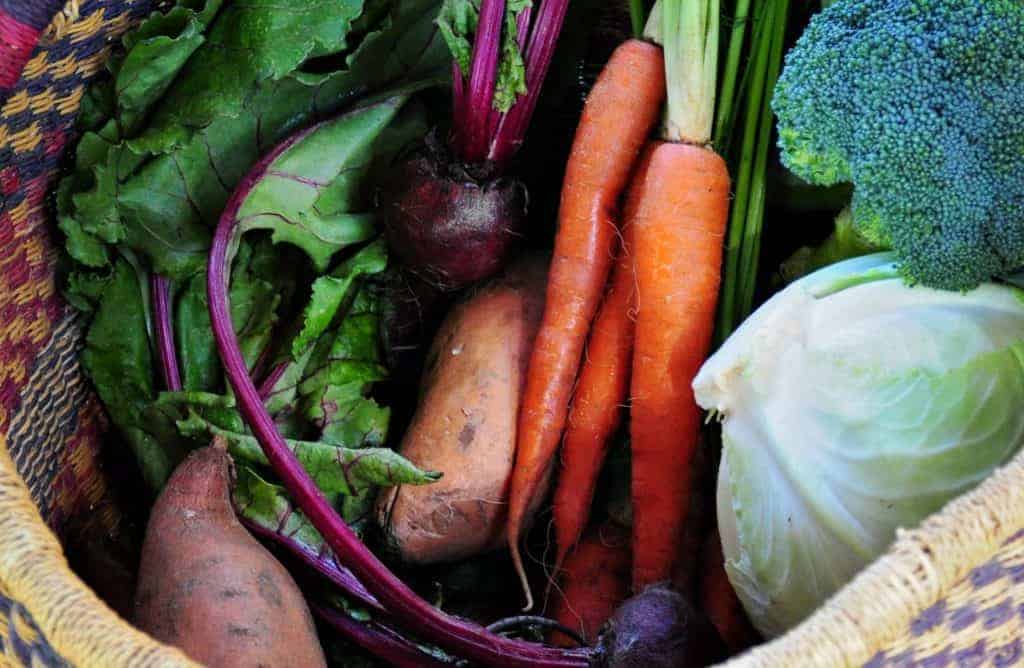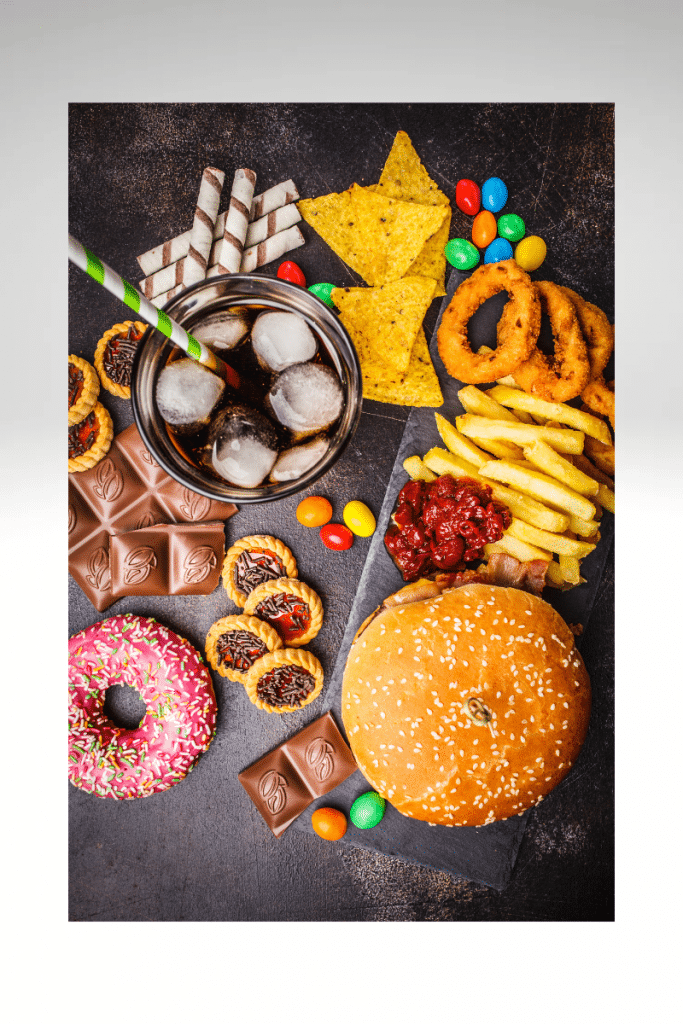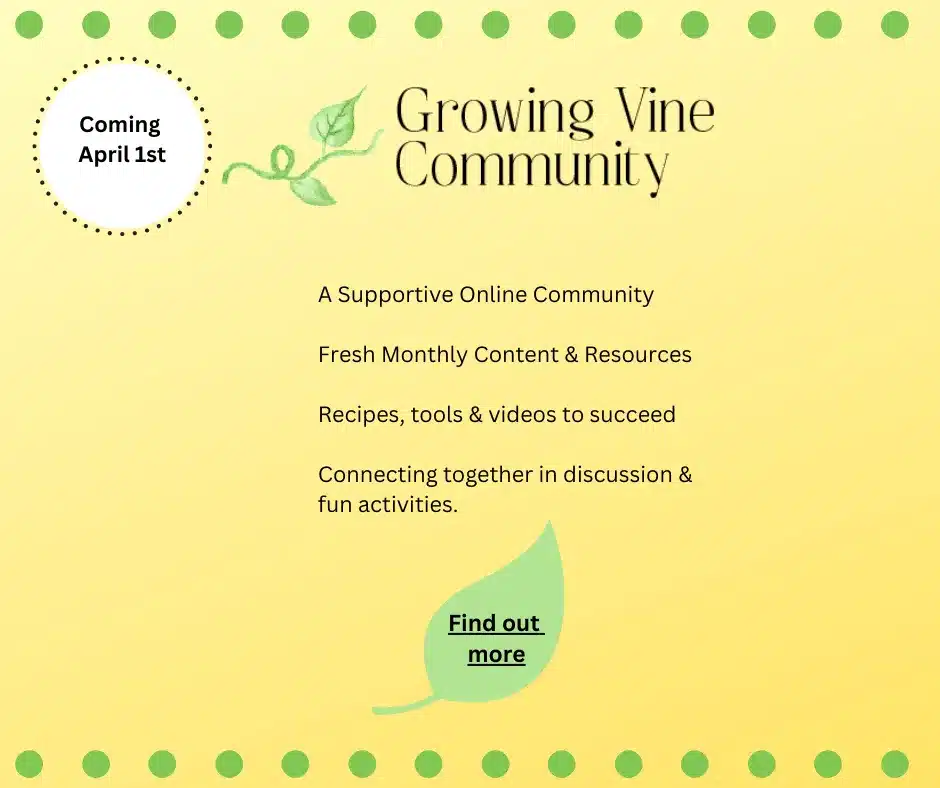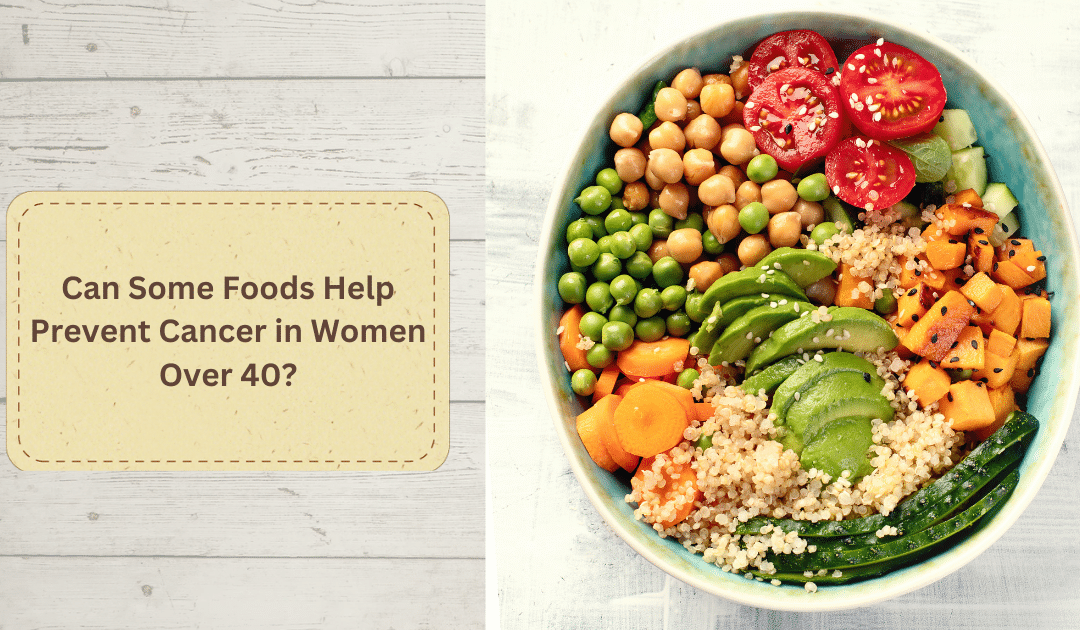What Are the Top 10 Cancer-Fighting Foods?
As women enter middle age, cancer risk increases, so it is essential to know what the top 10 cancer-fighting foods are. Genetics can play a role, but lifestyle factors such as diet and habits can significantly influence cancer risk.
Because cancer is the second leading cause of death, it is essential to talk about what we can do to help prevent it and increase our survival rate once we have it.
Let’s explore the relationship between cancer risk and lifestyle choices, focusing on diet, exercise, and other vital habits for women over 40. I will also share some cancer-fighting meals and which cancer-fighting foods to include.
Cancer Risk Women Over 40
According to the American Cancer Society, the most common cancers for women after 40 include breast, colorectal, lung, cervical, endometrial, ovarian, and skin.
There are several reasons why, as we get older, we are at more risk for cancer. Here are some of these:
1. Hormonal Changes and Cancer Risk
Women in their 40s experience hormonal fluctuations, especially during perimenopause, which can affect cancer risk. Estrogen dominance, commonly experienced during this phase, has been linked to an increased risk of breast and uterine cancers. Understanding hormonal changes and their impact on cancer development is crucial for proactive prevention strategies.
MDAnderson Cancer Center has a great article how hormones are connected to cancer risk. There is also an article on Vine Ripe Nutrition on foods and hormones. You may also find this article about foods that help hot flashes beneficial.
2. Age Itself
As we age, our cells are more likely to be damaged, and our bodies are less efficient at repairing themselves.
3. Chronic Inflammation
Chronic health conditions that provide inflammation that persists for long periods and microbial infections that last for years affect the body’s natural DNA and put us more at risk. This was originally published by the National Cancer Institute in an article called Chronic Inflammation.
4. Exposure to UV Rays
The longer we live, the more frequently we are exposed to the sun and its UV Rays. The more we contact them, the greater the risk for skin cancer.
5. Environmental Factors
Depending on where we live, we may be exposed to several environmental factors that can increase the likelihood of cancer.
6. Lifestyle Factors
This article, called Cancer Is a Preventable Disease That Requires Major Lifestyle Changes, suggests that 90-95% of cancer is from lifestyle and environmental causes.
What we eat, how much we engage in physical activity, whether we smoke or drink, whether we are stressed, and whether we can sleep all affect cancer risk. Our environment, which some can control but some people cannot, also affects cancer risk. We will talk more about these below.
Dietary Influence on Cancer Risk
What foods can help reduce the risk of cancer?
There are lots of them! More has been studied and written about foods that help prevent and fight breast cancer. What foods prevent colon cancer are also popular topics. Many of these same foods can be eaten to prevent and fight other cancers.
The Role of Nutrition in Cancer Prevention
A diet rich in fruits, vegetables, whole grains, and lean proteins can significantly reduce cancer risk. These foods contain antioxidants, vitamins, and minerals that help neutralize free radicals and support immune function. Conversely, a diet high in processed foods, red meat, and sugary snacks may increase inflammation and oxidative stress, contributing to cancer development.

What Are the Top 10 Cancer-Fighting Foods?
Several nutrients, phytochemicals, and food substances are beneficial in preventing and surviving cancer. Incorporating these nutrient-rich foods into daily meals is essential for maintaining optimal health.
Here is a short list of the top cancer-fighting foods:
Web MD
1. Calcium-Rich Foods: Research has found that when people have adequate dietary calcium or supplements, they are less likely to have colon growth or cancer. Remember, it is always best to get nutrients from food.
2. Whole Grains: These are rich in magnesium and fiber. Nutrition recommendations suggest eating at least half of your grains whole.
3. Beans: A good source of flavonoids that protect against tumors, and antioxidants in beans may prevent colon cancer.
4. Salmon or Trout: If you eat fish, choose fatty ones rich in omega-3 fats, which can slow cancer cell growth. Although all diets that contain a large portion of plant-based foods help prevent cancer, those that contain 1-2 servings of fish each week appear to be the most protective. omega-3 fatty acids in fish may help reduce the risk of breast and colon cancers.
5. Cruciferous Vegetables: Kale, collards, cauliflower, broccoli, and Brussels sprouts are rich in a beneficial plant chemical called glucosinates. These further break down into isothiocyanate and indoles, which have anti-cancer effects.
6. Mushrooms contain a powerful antioxidant called ergothioneine, which helps our immune system and reduces cancer risk. An excellent article about this in the Advances in Nutrition Journal entitled “Higher Mushroom Consumption Associated with Lower Risk of Cancer. (I cannot link to it, but you can search for it). Studies have found that people eating 1/4 cup of mushrooms had a lower cancer rate. Shitakes, oysters, maitakes, and King oysters are incredibly high in this antioxidant.
7. Walnuts and Other Nuts: Eating nuts 4 or 5 times a week may reduce cancer risk by 15 %. Nuts contain nutrients and phytochemicals that have cancer-protective properties.
8. Eat a Variety of Colorful Fruit: Eating as many beneficial plant chemicals as possible is essential. For example, orange fruits contain a powerful anti-cancer substance called beta-cryptoxanthin, and red, purple, and blueberries contain polyphenols, which are also very important.
9. Variety of Colorful Vegetables: In this article looking at the beneficial plant chemicals and cancer. It discusses the red phytonutrient lycopene in tomatoes, which plays a big role in its prevention. Lutein and zeaxanthin in dark leafy greens and dark orange vegetables rich in beta-carotene also protect. Onion and garlic are white foods rich in allium, which is also beneficial in preventing cancer.
10. Soy Foods: There is much controversy regarding soy and cancer prevention and eating soy during cancer treatment. Two recent studies support the use of soy foods, not supplements, in the prevention of cancer Intake of Soy, Soy Isoflavones and Soy Protein and Risk of Cancer Incidence and Mortality – PMC (nih.gov) and Soy intake and breast cancer risk: a prospective study of 300,000 Chinese women and a dose–response meta-analysis – PMC (nih.gov).
Discuss this with your doctor and a registered dietitian to determine what works best.
In addition to this top 10 list that I put together from a large body of research, here are two list of foods to prevent colon cancer from the Cleveland Clinic and another good summary from Very well Health.
There are also several good articles about foods that prevent breast cancer, or if you have been wondering what diet to fight breast cancer is most beneficial.

Are There Foods to Avoid if You Have Cancer?
As a dietitian, I wouldn’t say I like to use the word avoid, but I want to share some foods to eat less of to help prevent or provide better outcomes after someone is diagnosed with cancer. Some foods are processed meats cured, salted, or preserved with added chemicals. This includes hot dogs, bacon, ham, bologna, and deli meat.
Also, excess red meat, especially if it has been charred.
Other Lifestyle Habits and Cancer Prevention
Importance of Regular Exercise
Regular physical activity helps maintain a healthy weight and reduces the risk of various cancers, including breast, colon, and endometrial. According to an article from the American Cancer Society, exercise also boosts circulation, strengthens the immune system, and regulates hormone levels, contributing to cancer prevention. To reap these benefits, set a goal for at least 150 minutes of moderate-intensity weekly exercise.
Limiting Alcohol and Tobacco Consumption
Excessive alcohol consumption and tobacco use are well-established risk factors for several types of cancer, including breast, liver, and lung cancers. The Centers for Disease Control has found that possibly 40% of cancers found may have a tobacco link.
This handout from the National Cancer Institute has some helpful information on understanding the link between alcohol and cancer risk.
Women over 40 should aim to limit alcohol intake to no more than one drink per day and avoid smoking and other tobacco use altogether to reduce cancer risk.
Stress and Cancer Risk
We often hear about stress and how it affects our cancer risk. Let’s talk about some of the ways this may happen. I found this informative blog post on Stanford Medicine’s Surviving Cancer by Dr. Mark Doolittle, and I would like to share a few highlights.
He discusses that stress can weaken the immune system and provides great ways to de-stress to help you reduce your risk.
In a recent article called Psychological Stress and Cancer, the authors found that increased stress hormones can activate changes in the body that can contribute to DNA damage, gene instability, and increased risk of tumor growth.
Sleep
Does sleep disruption increase cancer risk? Some research suggests that this is possible. One article from John Hopkins Medicine discusses how sleep disruption changes our circadian rhythm, which may increase the risk of colorectal, breast, ovarian, and prostate cancers. It also mentions that light during the night can decrease our body’s natural melatonin, encouraging cancer to grow.
This article from the Sleep Foundation discusses lack of sleep and the increased risk of colon polyps and provides some great ways to improve sleep hygiene. Here is another article on sleep that you might find helpful.
Adequate Hydration
This may be due to dehydration and an increased concentration of carcinogenic compounds. It can also decrease transit time, which may lead to toxins in the colon for extended periods.
Cancer-Fighting Meals
Make healthy meals Using the top 10 cancer-fighting foods. Here are resources from the National Cancer Institute, the American Institute for Cancer Research, and the American Cancer Society.
I have additional plant-based recipes on the Vine Ripe Nutrition blog. Here are just a few ideas to help fight and prevent cancer.
How to Starve Cancer Diet
An exciting concept in cancer prevention is angiogenesis, which stops the excess blood cells from feeding cancer. Check out this interview with Dr. William Li to learn more.
Preventing Women Over 40 Cancer Risk
As women enter their 40s, prioritizing healthy lifestyle habits becomes paramount for cancer prevention and promoting overall well-being. By adopting a nutritious diet rich in fruits, vegetables, and lean proteins, engaging in regular exercise, and avoiding tobacco use and excessive alcohol consumption, women can empower themselves to take control of their health and lower their risk of developing cancer.
It is essential to include and maintain healthy lifestyle habits. In addition, it is important to follow up with your primary care doctor and getting vital cancer screenings like mammograms, colonoscopies, and other preventive health exams is important.
Including cancer-fighting meals with some of the top 10 cancer-fighting foods can be a good start!
I hope that this information will help encourage you with the power of diet and lifestyle in cancer prevention, treatment, and increased survival! I would love to hear what you are doing to stay healthy.
If you want a supportive women’s health group to help you make health changes and find additional information on fighting cancer, check out the Growing Vine Community.



